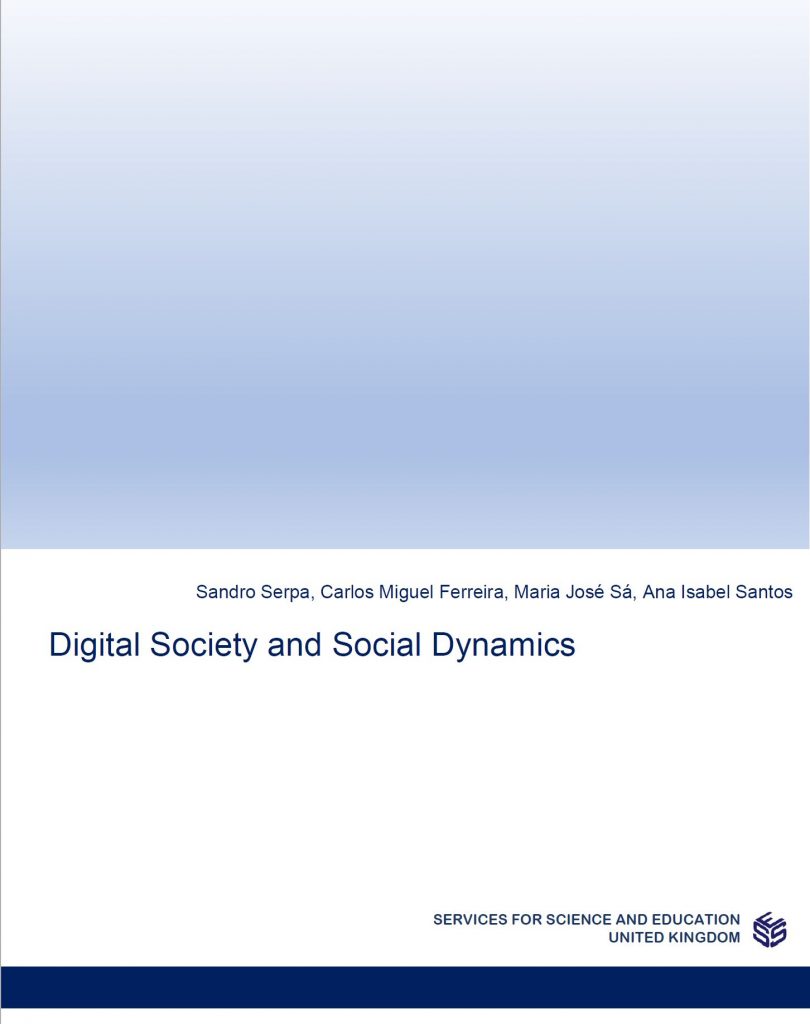Digital society and social dynamics
We live in an increasingly digital society, in which the Internet and the intensification of interconnections in the virtual world have a central place in a context in which the digital, applied both in production (the smart industry) and – more widely and ambitiously – in society (the super-smart society), will be paramount in promoting quality of life and sustainability as economics, ecology and social equity. This e-Book offers a set of topics related to the Digital Society: Industry 4.0, Society 5.0, Digital literacy, Transversal competences, Sustainability digital innovations, Sustainability Literacy, Sociology, Socialisation, Sociology and History, Inequalities in the digital society and Sociology, Ivan Illich, Preprint, Organisational culture, Bureaucracy, Digitalisation of organisations and COVID-19. In summary, this E-book seeks to be a contribution to a more informed society, shaped by the digital in the social dynamics, in its broader concept, through a stance focused on social sciences.
